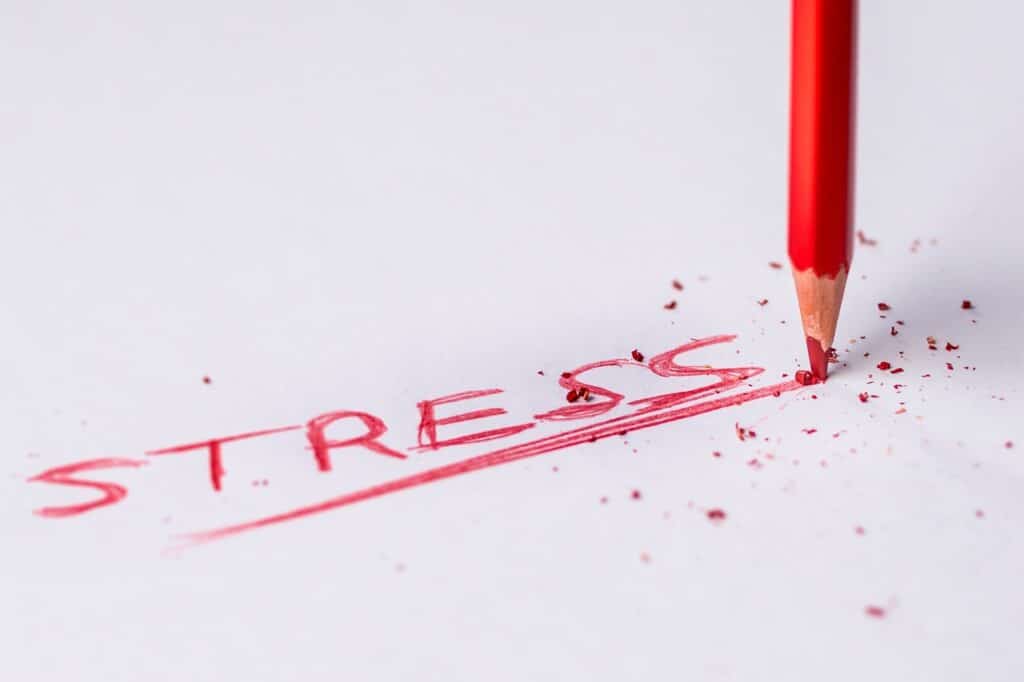Stress is one of those words we hear thrown around on a daily basis. At one end of the stress spectrum, there are minor annoyances like traffic jams or stressful days at work that raise your blood pressure slightly but don’t last for long periods. On the other side sits life’s unexpected events, such as losing someone close to you, getting fired from a decades-long position, or receiving a scary medical diagnosis.
Stress and drinking alcohol often go hand in hand. Individuals often turn to alcohol use as a method to cope with stressful situations, regardless of the risk it puts on overall health.
No matter the kind of “stress” you’re under, it’s safe to say no one likes being stressed too much. There are healthy alternatives to the “stress and drinking” chain that can help you cope. Drinking only eliminates stress in the short term, whereas healthy coping mechanisms keep both the brain and body stress-free.
Why Do We Drink When Stressed Out?
Dealing with stress can be hard, so it’s natural to want to look for something that helps you feel good and takes your mind off whatever is on your mind. Alcohol is one of the many substances individuals look towards to combat stress, as it has the stigma of helping lower inhibitions and relax the mind. Even as far back as 2,500 years ago, poets and writers described there being no need to look for alternatives to alcohol for stress. Instead, drinking was seen as the best way to relax, and if you didn’t drink, you were often chastised socially.
Sure, there’s a bit of truth to the impact that a few drinks can have, as alcohol is a central nervous system sedative. But the effects of alcohol aren’t nearly strong enough, nor do they last long enough to be worth the trouble. There are plenty of other alternatives to alcohol for stress, especially if you value sustainability. But the first step to knowing how to stop stress drinking involves knowing what happens when you drink under stress. For that, we’ll take a look at the impact alcohol has on your body.
What Actually Happens When You Drink Under Stress
Stress drinking flips a switch in your head — a switch that often causes individuals to be more likely to drink heavy amounts of alcohol. Research has also shown that stress drinking can cause your brain to mute the effects of alcohol, prompting you to consume more and more and rewarding your brain with a dangerous chemical good. In other scenarios, alcohol can actually worsen your stress, especially when the body has to readjust after a night of heavy drinking (often referred to as a hangover).
Don’t neglect the importance of finding other alternatives to alcohol for stress, either. This is critical as long-term alcohol consumption can cause increased anxiety, leading to the desire for more alcohol and trapping you in a dangerous cycle. Many drinkers are prone to developing alcohol disorders, which is often a result of a lack of information on how to stop stress drinking or a lack of knowledge about alternatives to alcohol for stress. Some of the symptoms of anxiety due to increased alcohol use include:
- Trembling hands
- Sweats
- Rapid heart rate
- Nausea
- Hallucinations
- Vomiting
- Seizures
Remember, alcohol is not a substitute for anxiety treatment or a way to give you self-confidence or support. It’s important to seek help from a medical professional if you’re dealing with mental illnesses or suspect a loved one needs expert advice. So if you’re putting your faith in stress drinking, look for other solutions to rest and relax your mind. Use these eight alternatives to alcohol for stress and find long-term solutions for the things plaguing your mind.
Spend Time with Friends and Family
Just because you pull alcohol out of your plans to eliminate stress doesn’t mean you have to avoid everyone. While peer pressure and drug abuse often co-occur, you more than likely have friends and family members who will support your decision to minimize alcohol intake.
Your group can engage in plenty of healthy activities, such as going for a walk, taking a hike, shopping, cooking together, and more. By spending time with people who support your decision, you’ll realize that there are more impactful ways to manage stress levels.
Move Your Body and Get Some Exercise
Exercise is great for your heart and head as it reduces stress hormones in the body, such as cortisol and adrenaline. It also causes the production of endorphins which act as a natural painkiller and mood booster. So even small amounts of exercise can positively affect stress levels.
Switch up the normal “stress and drinking” to “stress and sweating” to see a dramatic change in your mood. Exercise eliminates stress, whereas drinking is just masking it. The key is to focus on the amount of exercise you can actually achieve. Otherwise, you’ll find yourself stressing out over not exercising, ultimately defeating the purpose.
Meditation and Mindfulness
Meditation can help you find a sense of calm and gain a new perspective in your life. Whether it’s through the use of mantras or just focusing on one point, meditation is an effective way to relieve stress.
Mindfulness is similar to meditation in that you should be focusing on your breathing, but its something that can also help ground you in your senses. You should focus on the things you can see, touch, hear, smell, and taste. Pay attention to your surroundings and remove all expectations.
Find a Reason to Laugh
Watch a funny movie or TV show to help relieve stress — it’s hard to feel stressed when you’re laughing! It’s good for your health, and there are a few ways it may help relieve stress. It can relieve your stress response and tension by relaxing muscle groups in the body. Laughter can also improve one’s mood while improving immunity in the process.
Spend Time Reflecting in a Journal
A grateful person is a happy person. You can change your perspective on life by taking time each day to think about what you are thankful for. This leads you towards a more positive outlook and, ultimately, happiness in life. The “stress and drinking” combination can be eliminated from your life simply because you’re in a better mood.
Spending 5 minutes a day writing in a journal helps bias thinking from negative thoughts of resentments or stresses into something as simple as gratitude. Ultimately this leads down a path to greater success with less stress in your daily routine (which inevitably improves any person’s quality of living).
Practice Positive Affirmations
A mantra is a word, sound, or group of words repeated often to assist in meditation. It can also be used to affirm negative thoughts and low self-esteem. Like with any positive statement, it needs to be said consistently and in the present tense so that you believe what you say when saying them out loud. An example of a good mantra is “I am safe” versus “I will never get hurt.”
When reciting affirmations outside your practice time, use phrases like, “my mind is at ease” or “with every breath, I take my stress levels lower.” Mantras such as this help reinforce strengths during stressful moments while feeling more relaxed throughout all other times of the day.
Spend Time with Your Pet
Pets provide many people companionship, social support, and a sense of purpose. Having your furry (or scaly!) friend around may help reduce stress by releasing oxytocin in the brain, which promotes positive moods. Pets also relieve stress because they are enjoyable activities that keep you active and give you something to care for, giving life meaning again. Simply replacing episodes of stress and drinking with spending time with your pet can help make a healthy shift.
Donate Your Time
Helping someone in need makes you feel better. Research shows that altruism improves mood and takes the focus off our own struggles. Participants in charity or social programs report that when they increase their contribution toward others, their mood also improves. If you give your time to others, you may find that your stress levels and desire to drink will drastically decrease.
Finding the Right Way to Channel Stress Away From Drinking
Drinking definitely isn’t the answer to stress. There are so many other ways to work through your stress and anxiety, and it’s best to address stress rather than suppress it. Start with small goals to get out of your drinking habit. Build on those as you go, and remember to give yourself time.
If you’re having difficulty managing your stress and drinking, it could be a symptom of a bigger issue. You may need to seek the help of a professional treatment center. Lifetime Recovery can help you overcome alcohol abuse and manage your stress levels.
Beating alcoholism requires intensive care, attention to detail, and support from mental health professionals that put your needs first. Lifetime Recovery is a preferred support system for many New Jersey residents searching for answers on how to stop stress drinking due to our comprehensive suite of addiction therapy services. Our specialists genuinely care to take your case at face value and can provide a support system that helps you find alternatives to alcohol for stress while regaining control over your life. Contact us today and receive more information on how we can help you ease your stress without the need for harmful substances.



